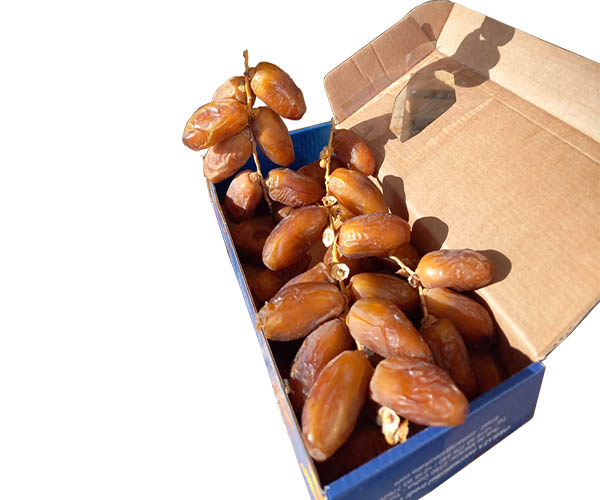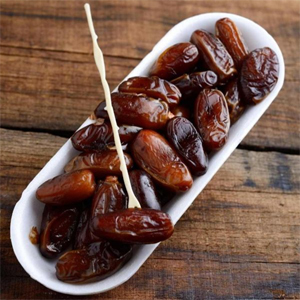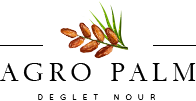Renowned for their rich flavor and abundant health benefits, Tunisian dates are prized jewels of the Mediterranean. Cultivated mainly in the southern parts of the country, these naturally sweet fruits are deeply woven into the fabric of Tunisian cuisine and culture. This article will take a closer look at the various types of Tunisian dates, their cultivation methods, nutritional advantages, and their diverse applications in traditional dishes.
Varieties of Tunisian Dates
Tunisia is famous for its diverse range of dates, each with its own distinct taste and texture. The country’s unique climate and fertile soil provide ideal conditions for cultivating these sweet fruits, resulting in several notable varieties:

Deglet Nour is perhaps the most famous Tunisian date, known globally as the “date of light” for its golden, translucent appearance. It boasts a soft texture and a sweet, balanced flavor with subtle caramel notes, making it perfect for various culinary uses. Deglet Nour dates are often found in pastries like makroud and date-filled cakes, and they add a rich flavor to traditional dishes such as couscous and tajines. Their high quality and versatility make them a favorite in both home kitchens and professional culinary settings.
While less known internationally, the Kenta date offers its own distinct qualities. This variety is known for its firm and fleshy texture, coupled with a delightful sweetness that remains intact even after extended storage. Kenta dates are perfect for both snacking and culinary use, as they hold their flavor and structure over time. Their long shelf life and consistent taste make them a trusted choice in Tunisian date production.
The Boufegous date stands out for its intense sweetness and melting texture, providing a truly indulgent experience. Often eaten fresh, Boufegous dates offer a burst of natural sweetness that enhances many desserts, such as date cakes and sweet pastries. Their soft, melt-in-the-mouth quality makes them a popular choice among date lovers and a staple in numerous Tunisian sweets.
Each of these Tunisian date varieties brings a unique character to the table, enriching the flavors and diversity of Tunisian cuisine. Whether featured in traditional dishes, enjoyed as snacks, or used in gourmet desserts, Tunisian dates are prized for their outstanding quality and taste.
Cultivation of Dates in Tunisia

Date cultivation in Tunisia is a deeply rooted tradition, reflecting a rich cultural heritage that has been handed down through generations. This ancient practice is central to the country’s agriculture, especially in the southern regions where date palms flourish. The arid and semi-arid climates of southern Tunisia, characterized by intense heat, abundant sunshine, and minimal rainfall, provide the perfect conditions for cultivating high-quality dates. Key production areas such as the oases of Nefta, Tozeur, and Ksar Ouled Soltane are known for their fertile soils and vast date palm plantations, cementing Tunisia’s status as a major player in the global date market.
The process begins with planting date palms in well-draining sandy soils that prevent waterlogging and provide essential nutrients. Effective soil management and careful preparation are crucial for the healthy growth of date palms and a bountiful harvest. Farmers use several specialized techniques to maintain the vitality of the trees and ensure the quality of the fruit. For instance, thinning date clusters allows the remaining dates to grow larger and more evenly, while manual pollination enhances the chances of successful fertilization, as date palms are male and female.
These meticulous practices, honed over centuries, not only uphold the quality of Tunisian dates but also preserve traditional methods that have defined this craft for generations. As a result, Tunisia produces a diverse array of dates, each with characteristics shaped by local conditions and the expertise of its farmers. Through their unwavering commitment to these time-honored techniques, Tunisian farmers continue to cultivate some of the finest dates, securing the country’s esteemed reputation in the global market.
Health Benefits of Tunisian Dates

Tunisian dates are cherished not just for their rich flavor, but also for their impressive health benefits. These fruits are a nutritional powerhouse, offering a variety of advantages that enhance any diet.
Rich in Nutrients, Tunisian dates are loaded with essential vitamins, minerals, and dietary fiber. They are particularly high in potassium, which promotes heart health and helps maintain stable blood pressure. Dates are also a great source of magnesium, which is important for muscle and nerve function, and iron, which is essential for preventing anemia and sustaining energy levels. This nutrient combination makes dates an excellent addition to a balanced diet.
A Natural Energy Booster, dates are renowned for their high content of natural sugars, making them a quick source of energy. This makes them a perfect snack for athletes and anyone in need of a fast energy lift. The natural sugars in dates—glucose, fructose, and sucrose—are easily absorbed, effectively replenishing energy reserves, which is particularly beneficial for those with active lifestyles.
Promotes Digestive Health, the dietary fiber in dates is essential for maintaining digestive wellness. Fiber helps regulate bowel movements and prevents constipation by adding bulk to stool. Regular consumption of dates supports a healthy digestive system and overall gastrointestinal health.
Natural Antioxidants, dates are rich in antioxidants, which are compounds that help protect the body’s cells from oxidative damage caused by free radicals. The antioxidants found in dates, such as flavonoids, carotenoids, and phenolic acid, contribute to reducing inflammation and protecting against chronic diseases. By incorporating dates into your diet, you can benefit from their protective effects and support your body’s ability to combat oxidative stress.
In summary, Tunisian dates offer a range of health benefits that extend beyond their delightful flavor. They provide a wealth of essential nutrients, a quick source of energy, support digestive health, and offer powerful antioxidant properties. Including these dates in your diet can contribute to overall health and well-being, making them a delicious and beneficial addition to your daily nutrition.
Conclusion
Tunisian dates are much more than just a fruit; they are a key element of Tunisian culture and cuisine. Their rich flavors, high nutritional value, and versatile use make them a valuable and adaptable food. Whether enjoying a traditional sweet or enhancing a dish, Tunisian dates continue to be a symbol of Tunisia’s culinary heritage.



